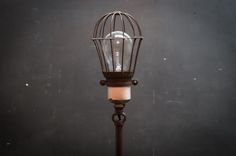Dru Bartlett digs into the mire of theatrical superstitions.
I have a very strong recollection of being ushered out of the theatre and asked to turn around three times! I had no idea what I had done and was starting to doubt the sanity of the people around me. This request was happily supported by quite a few of these new “friends” of mine! I laughed, they frowned and so I learnt about superstitions in theatre.
Generally, I believe all theatre groups have various superstitions they stick by. The origins of them have always fascinated me, so I have done some research and selected a few of the more popular superstitions to mention in this article. For those that have never heard their origins it will hopefully be an eye opener and interesting knowledge, to those who have heard them mentioned – a fun recollection of various “rules”!
DON’T SAY ‘MACBETH’ OUT LOUD.
Don’t say the name of Shakespeare’s ‘Scottish play’ inside a theatre. It’s that simple. Just don’t! Apparently, the witchcraft incantations call upon evil spirits. The original actor who played Macbeth supposedly died tragically during the performance and the show was cursed from then on. Some theories mention that the curse dates back to the 17th century.
Famous performers such as Constantine Stanislavski and Charlton Heston suffered catastrophes during or after a production of Macbeth. It is said that Abe Lincoln read this play the night before his assassination. Today, people associate its utterance to technical malfunctions, actors forgetting lines, props and costumes going missing or breaking, bad box office sales and a myriad of other horrors. (Stage Door productions: #SDP family: Blog)
Ngaio Marsh weaves this superstition brilliantly into her murder mystery ‘Light Thickens’, a story about a production of Macbeth, sorry, ‘the Scottish play’.
Solution 1: Exit the theatre, spin three times, spit, and utter a Shakespearean insult or say the foulest word the person can think of and wait for permission to re-enter the theatre. This ritual is documented in the play “The Dresser”.
Solution 2: Recite a line from “Two Gentlemen of Verona” or “A Midsummer Night’s Dream” as they are considered ‘lucky’ plays.
DON’T SAY ‘GOOD LUCK’ – SAY ‘BREAK A LEG’ OR ‘CHOOKAS’
One theory mentions spirits of the stage use magic to force the opposite of what you wish to happen. Another theory – ‘leg’ does not refer to an actor’s leg, but to the theatrical curtains that mask the backstage that are known as ‘legs.’ “Breaking a leg” means you’ve crossed from backstage onto the stage! Great news! There are theories dating back to Greek and Elizabethan times as well.

“Chookas” reportedly dates back to the early days of J.C. Williamson and is uniquely Australian! One statement said the term began in the [Australian] National Theatre Ballet & Opera Company in the 1940s/50s.
“In the early 1900s chicken was regarded as a treat (even in my experience ‘chicken in the basket’ was the most expensive dish on a menu). As most shows paid fees depending on the box-office take, a full house meant that the performers would be able to afford a chicken meal. The cry ‘chook it is’ was shortened to ‘chookas’, and eventually used by performers to wish each other a successful show regardless of the number of people in the auditorium.” (English Language and Usage: Etymology of “chookas”)
THE GHOST LIGHT

Actors are notoriously aware of the spirits among us; the ghost of Thespis (the first known actor in ancient Greece) is said to wreak havoc upon theatres all over the world. The ghost light tradition – leaving a single lit bulb upstage centre when the theatre is empty – is meant to ward off these mischievous spectres. In a more practical sense, it allows the stage managers, crew members and actors to find the light switch when entering a vacant theatre so that they don’t break their necks while crossing the totally dark stage.
A BAD DRESS REHEARSAL MEANS THE SHOW WILL BE A HIT
Wishful thinking or not, many stage actors swear that a bad dress rehearsal portends a great opening night. This is an old wives’ tale and no one is quite sure how it started (perhaps it was the quiet prayer of a high school drama teacher?) Many theatre folks cling to the idea that a bad dress rehearsal is a good omen for a successful opening night. Occasionally, there is the coincidence that a disastrous final rehearsal precedes an amazing premiere, but this most likely is the result of a prepared production, committed artists, and a large-dose of adrenaline.
NO WEARING BLUE
The idea that blue should never be worn on stage is a superstition that not many thespians have heard. Perhaps this myth has not survived as strongly as some other superstitions because the reason behind it is no longer relevant. This traditional superstition may be less adhered to in modern times, but it has its practical roots in early theatrical costuming. Blue was the most expensive coloured dye, and blue garments were put on stage at failing companies to trick the audience into thinking the producers were affluent. How to combat this indigo stigma? Add something silver to “prove” your wealth, and counter-balance the bad-luck-bearing shade.
MIRRORS ON STAGE ARE BAD LUCK
Is it the fear of the mirror breaking, resulting in seven years of bad luck, or is it the old superstition that mirrors are a gateway for evil spirits to cross over to the world of the living? It is neither. Mirrors are considered bad luck because they reflect light, which is tricky to place on stage without wreaking havoc with the lighting design of a production. Of course, it can be done, but a wrong hit with a spotlight and you could easily have a blinded actor who might just walk off the edge of the stage.
NO PEACOCK FEATHERS, REAL MONEY, OR REAL JEWELLERY ON STAGE

These banned items are said to cause forgotten lines, broken set pieces, and more live-performance disasters. The “evil eye” of the peacock feather is blamed for cursing numerous productions. As for real money and jewellery? These were originally discouraged in an attempt to prevent prop-table thievery.
WHISTLING BACKSTAGE IN A THEATRE IS CONSIDERED A JINX
This superstition grows out of a practicality – in the good old days of theatre, this seemingly silly rule actually has its roots in safety. In the early days of large-scale stage productions, backstage crews were composed of off-duty sailors using their hard-earned rigging skills to manipulate the sets and curtains. Just as they would on a large sea vessel, the crews communicated with each other through a series of coded whistles. Scenery was manually lifted into the air by men hoisting it with ropes (there were no hydraulics or advanced rigging systems to make it safer and easier).
An actor who whistled backstage might accidentally cue a stagehand to lift or drop scenery, potentially putting an unaware performer at risk of being crushed by a wall or a sandbag. The best way to make sure you didn’t become a theatre ghost was to refrain from whistling altogether. The rule has stuck and become a superstition.
